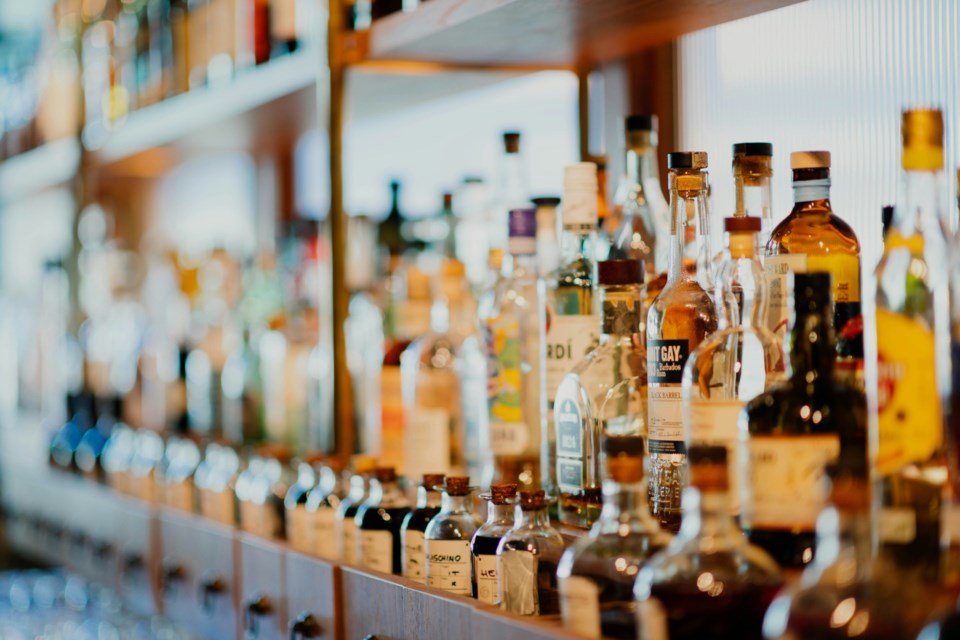It’s cheaper and easier to enter alcohol markets in the U.S. and Europe than it is to export Alberta-made liquor to some Canadian provinces, local distilleries say.
Yvonne Inrich, CEO of T-Rex Distillery in St. Albert, said her company would love to sell in B.C., and says certain liquor stores would take their products “in a heartbeat.”
“But because of regulations, it makes our product way too expensive, especially for B.C. and Ontario,” Inrich said. “We are way out of the competition.”
Inrich said the costs to sell her product in B.C would drive the price of T-Rex’s gin up to $100 a bottle. “Our regular vodka would go beyond $100 there,” she said. (The most expensive item on T-Rex’s online store is a four-litre “party jug” of vodka that goes for $56.99.)
“This is crazy. Nobody would buy this,” she said.
Although T-Rex attempted to enter the B.C. market, the province’s “red tape” and price markups proved too burdensome. Now the company sells its products in the U.S. and in Europe without much hassle, she said.
“We’re immigrants from Germany,” she said. “For us, this is one country. But still, the provinces have their own regulations, and I don't understand why they make it so hard on each other.”
David Scade, co-owner of Black Diamond Distillery, said when the Alberta spirit industry has discussions about interprovincial trade, the general message is that “it’s not worth it” exporting to B.C..
Scade has not tried to sell his products to Alberta’s coastal neighbour. However, he did investigate selling in Ontario when that province’s liquor control board tried to attract some craft distilleries last year.
Because of Ontario’s higher alcohol taxes and its provincially managed liquor sales system, as well as the challenges of transporting goods across the country, “it really wasn’t a profitable endeavour,” Scade said.
Cutting red tape around interprovincial trade has “always been at the front of the discussion” with the Alberta Craft Distillers Association, he said.
“It would be great to have product across the country in every province, but if it’s at a loss, it’s not smart business,” Scade said.
Scade said he has explored exporting the company’s products to the U.S. He has also been doing direct-to-consumer sales to customers around Canada who order from his website. He said he has not been taxed by other provinces for direct-to-consumer sales.
Interprovincial dispute
Alberta distilleries and breweries have been “locked out” of the B.C. market, said Morinville-St. Albert MLA Dale Nally, who also serves as minister of red tape reduction and Service Alberta.
Last month a dispute erupted between Canada’s westernmost neighbours when Alberta told B.C. winemakers to halt direct-to-consumer sales to Alberta customers or lose access to the Alberta’s retail market.
Nally said a primary reason the government intervened was that B.C. winemakers weren’t paying taxes to Alberta on direct-to-consumer sales.
Alberta is willing to open the direct-to-consumer market back up, with some conditions.
“We're willing to set up a direct-to-consumer model that allows the taxes to be collected,” he said. “But if we're going to do that, our producers need access to B.C. markets.”
If B.C. agrees, the move could change the province’s liquor landscape dramatically.
According to the B.C. Liquor website, which tracks all of the alcohol brands sold in the province, only seven craft beers come from other Canadian provinces, while 203 craft beers sold in B.C. are made by B.C. brewers.
“In the last nine months, we have sold 570,000 hectolitres of B.C. beer in Alberta,” Nally said. “We embrace their producers. They need to do the same for ours.”
Nally said Alberta will also audit its agreements with Ontario to see if the agreements have successfully encouraged interprovincial sales.
The B.C. Liquor Distribution Branch (LDB) purchases all of the alcohol that gets distributed in B.C., whether that alcohol comes from inside or outside the province, said B.C.'s Ministry of Public Safety and Solicitor General in an email.
"Alberta manufactured products can be registered for sale in British Columbia as long as the products are represented by an authorized domestic agent and meet Health Canada and the Canadian Food Inspection Agency rules and regulations and the BC [LDB's] social responsibility criteria for registration of liquor products," the ministry said. "The same wholesale price calculation is used for a B.C.-based distillery as for an Alberta-based distillery. There is no extra tax on out-of-province liquor in the calculation of wholesale pricing in B.C.."
The ministry did not comment on whether it is finding ways to encourage out-of-province liquor sales.




